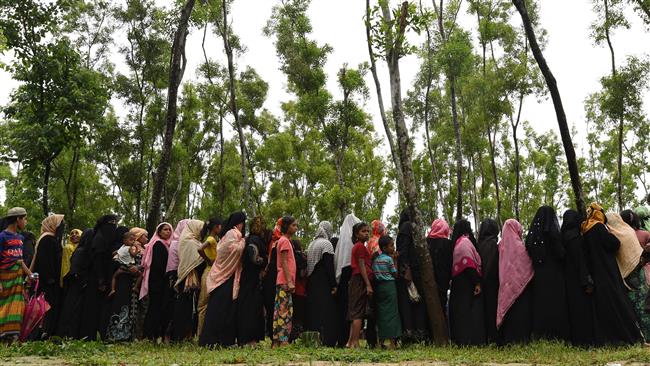
RNA - Marzuki Darusman, whose team is also tasked with probing torture, sexual violence and the burning of villages in Myanmar’s Rakhine state told his sponsors in the council on Tuesday that he was waiting for Myanmar's permission to enter the country.
He told the Geneva-based UN council that the time left until his current March 2018 deadline was "utterly insufficient" and asked for a six-month extension.
"Now facing an escalating situation in northern Rakhine that is increasing our workload exponentially, we are deeply concerned about our ability to verify the facts necessary to produce a report of the depth and quality that is expected of us by March," Darusman said.
Elsewhere in his remarks, Darusman said he hoped there would be progress in his request to enter Myanmar, following an address by Myanmar's de-factor leader Aung San Suu Kyi from which he said two main points emerged. "One, the categorical readiness of the government of Myanmar to receive back returnees at any time on the basis of a procedure that will have to be discussed at some point. And secondly, the readiness of the government to undertake be globally scrutinized by the international community. These two points bode well."
Darusman's team started its work in August, when a fresh increase in violence subjected the Rohingya in Muslim villages across the western state of Rakhine to mass killing, torture, rape and arson attacks and forced more than 420,000 to flee their homeland. His mission is to assess the situation across Myanmar since 2011.
Suu Kyi has faced harsh international criticism amid several reports about systematic attacks by the Myanmar military and majority Buddhists against the persecuted Muslim community.
But the brutality against the Rohingya has its roots in the very fact that Myanmar does not recognize them as citizens and has denied citizenship rights to 1.1 million members of the community for several decades, alleging they are Bengalis who have in the past migrated to the country from Bangladesh. The Rohingya were stripped of their citizenship in 1982 despite having lived in the country for generations.
Bangladesh evicts Rohingya from roadside camps
On Tuesday, Bangladesh police evicted Rohingya refugees from overcrowded roadside camps and farmland.
Police dismantled shanties around Kutupalong, one of the largest camps where roads are choked with refugees and long queues of traffic snake from aid centers.
Khadiza Begum, a widowed mother of three, gesturing to the monsoon downpour said, "The police told us to go, but how can I move again so soon with the kids and belongings in this rain?"
Water pumps have been installed around Kutupalong, with concrete rings stockpiled for latrines.
The government is building a massive new camp nearby to shelter 400,000 people. However, the UN says it will take time before it is equipped with tents, toilets and medical facilities.
"The work is ongoing and some newly-arriving families have moved in," UN refugee agency spokeswoman Vivian Tan said, adding, "As the influx of refugees continues, we are seeing massive humanitarian needs in Bangladesh across the board."
The UN says about 421,000 Rohingya have crossed into Bangladesh since August 25, overwhelming the ill-equipped refugee camps along the border.
Aid groups have warned of an unfolding humanitarian crisis in the camps. Those left to fend for themselves have taken refuge in roadside shanties.
847/940